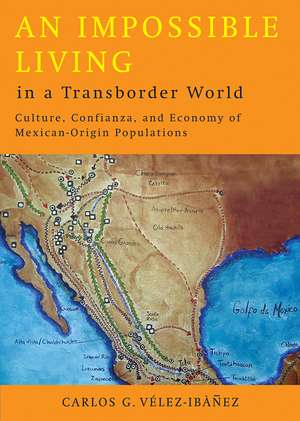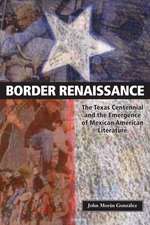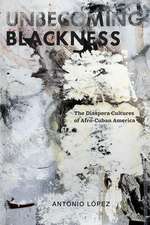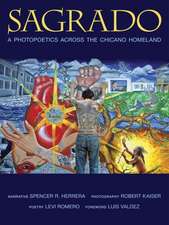An Impossible Living in a Transborder World: Culture, Confianza, and Economy of Mexican-Origin Populations
Autor Carlos G. Vélez-Ibáñezen Limba Engleză Paperback – 15 dec 2010
They are known as cundinas or tandas in Mexico, and for many people these local savings-and-loan operations play an indispensable role in the struggle to succeed in today’s transborder economy. With this extensively researched book, Carlos Vélez-Ibáñez updates and expands upon his major 1983 study of rotating savings and credit associations (ROSCAs), incorporating new data that reflect the explosion of Mexican-origin populations in the United States. Much more than a study of one economic phenomenon though, the book examines the way in which these practices are part of greater transnational economies and how these populations engage in—and suffer through—the twenty-first century global economy.
Central to the ROSCA is the cultural concept of mutual trust, or confianza. This is the cultural glue that holds the reciprocal relationship together. As Vélez-Ibáñez explains, confianza “shapes the expectations for relationships within broad networks of interpersonal links, in which intimacies, favors, goods, services, emotion, power, or information are exchanged.” In a border region where migration, class movement, economic changes, and institutional inaccessibility produce a great deal of uncertainty, Mexican-origin populations rely on confianza and ROSCAs to maintain a sense of security in daily life. How do transborder people adapt these common practices to meet the demands of a global economy? That is precisely what Vélez-Ibáñez investigates.
Central to the ROSCA is the cultural concept of mutual trust, or confianza. This is the cultural glue that holds the reciprocal relationship together. As Vélez-Ibáñez explains, confianza “shapes the expectations for relationships within broad networks of interpersonal links, in which intimacies, favors, goods, services, emotion, power, or information are exchanged.” In a border region where migration, class movement, economic changes, and institutional inaccessibility produce a great deal of uncertainty, Mexican-origin populations rely on confianza and ROSCAs to maintain a sense of security in daily life. How do transborder people adapt these common practices to meet the demands of a global economy? That is precisely what Vélez-Ibáñez investigates.
Preț: 213.29 lei
Nou
Puncte Express: 320
Preț estimativ în valută:
40.81€ • 42.73$ • 33.77£
40.81€ • 42.73$ • 33.77£
Carte tipărită la comandă
Livrare economică 07-21 aprilie
Preluare comenzi: 021 569.72.76
Specificații
ISBN-13: 9780816526352
ISBN-10: 0816526354
Pagini: 264
Dimensiuni: 152 x 229 x 15 mm
Greutate: 0.34 kg
Ediția:1
Editura: University of Arizona Press
Colecția University of Arizona Press
ISBN-10: 0816526354
Pagini: 264
Dimensiuni: 152 x 229 x 15 mm
Greutate: 0.34 kg
Ediția:1
Editura: University of Arizona Press
Colecția University of Arizona Press
Notă biografică
Carlos G. Vélez-Ibáñez serves as Presidential Motorola Professor of Neighborhood Revitalization, as well as Chairman of the Department of Transborder Chicana/o and Latina/o Studies at Arizona State University.
Cuprins
List of Illustrations
Acknowledgments
Introduction
1 The Transborder and Transnational Dimensions of Culture and Political Economy
2 Confi anza: Building Block of Social Exchange and the Operational Cycles of ROSCAs
3 Social and Cultural Dimensions and Dynamics of Their Class Contexts
4 Living at a Slant in the Midst of Megascripts in the Transborder Southwest North American Region: Dos mujeres sin fi n 1
5 Crossing Divisions and Social Borders: ROSCAs as Transborder Practices and Their Functions
6 Conclusions 1
Appendix A: Foreword to Bonds of Mutual Trust
by Eric R. Wolf
Appendix B: FYGO
Appendix C: Six-Person, Thirty-Week Tanda
Appendix D: Contract of Agreement
Notes
Glossary
Bibliography
Index
Acknowledgments
Introduction
1 The Transborder and Transnational Dimensions of Culture and Political Economy
2 Confi anza: Building Block of Social Exchange and the Operational Cycles of ROSCAs
3 Social and Cultural Dimensions and Dynamics of Their Class Contexts
4 Living at a Slant in the Midst of Megascripts in the Transborder Southwest North American Region: Dos mujeres sin fi n 1
5 Crossing Divisions and Social Borders: ROSCAs as Transborder Practices and Their Functions
6 Conclusions 1
Appendix A: Foreword to Bonds of Mutual Trust
by Eric R. Wolf
Appendix B: FYGO
Appendix C: Six-Person, Thirty-Week Tanda
Appendix D: Contract of Agreement
Notes
Glossary
Bibliography
Index
Recenzii
“Analysis of ROSCAs has been virtually absent from the sociological and anthropological literature for decades. This book not only revives important concepts in that area but also illustrates how such associations are built into current society. It will be the cornerstone of future analysis and hypothesis-building about confianza, new types of agency, and the integrative quality of informal associations.”—Robert R. Alvarez, author of Familia: Migration and Adaptation in Baja and Alta California, 1800–1975
“Vélez-Ibáñez raises numerous interesting questions regarding the rotating savings and credit associations (ROSCAs) in Mexico and Southwest North America.”—Bulletin of Latin American Research
“Vélez-Ibáñez raises numerous interesting questions regarding the rotating savings and credit associations (ROSCAs) in Mexico and Southwest North America.”—Bulletin of Latin American Research
Descriere
With this extensively researched book, Carlos Vélez-Ibáñez updates and expands upon his major 1983 study of rotating savings and credit associations (ROSCAs), incorporating new data that reflect the explosion of Mexican-origin populations in the United States. This book examines the way in which these practices are part of greater transnational economies and how these populations engage in—and suffer through—the twenty-first century global economy.












